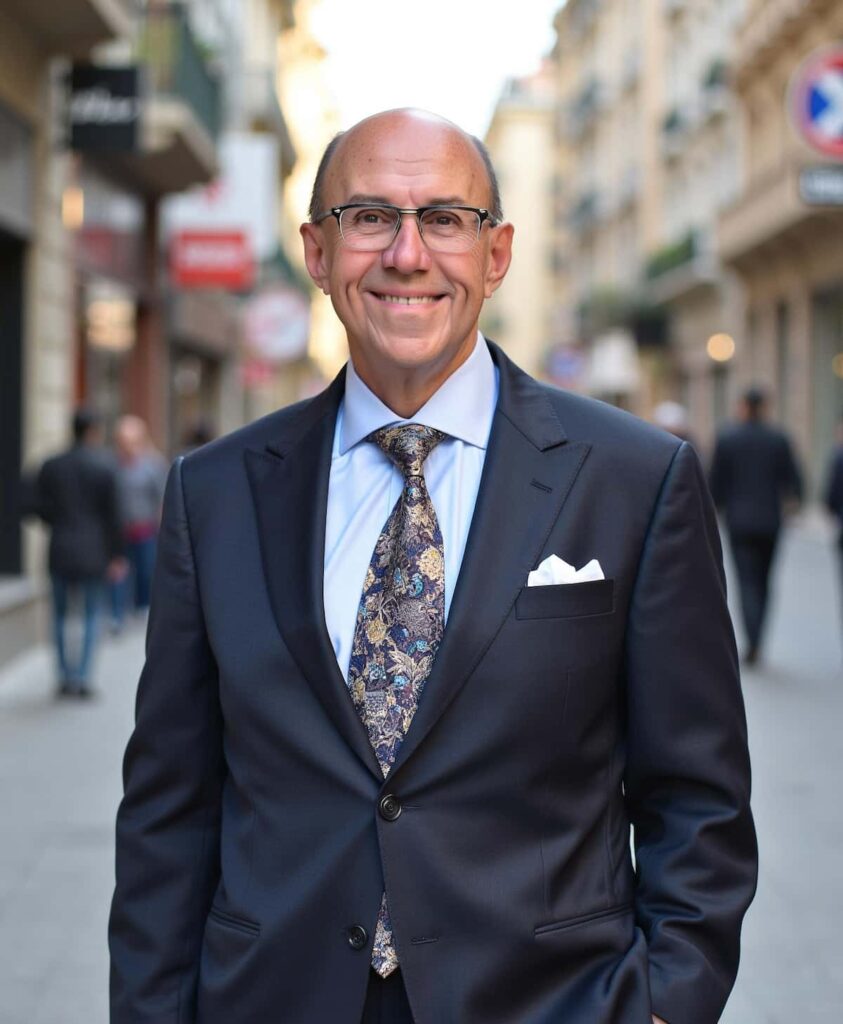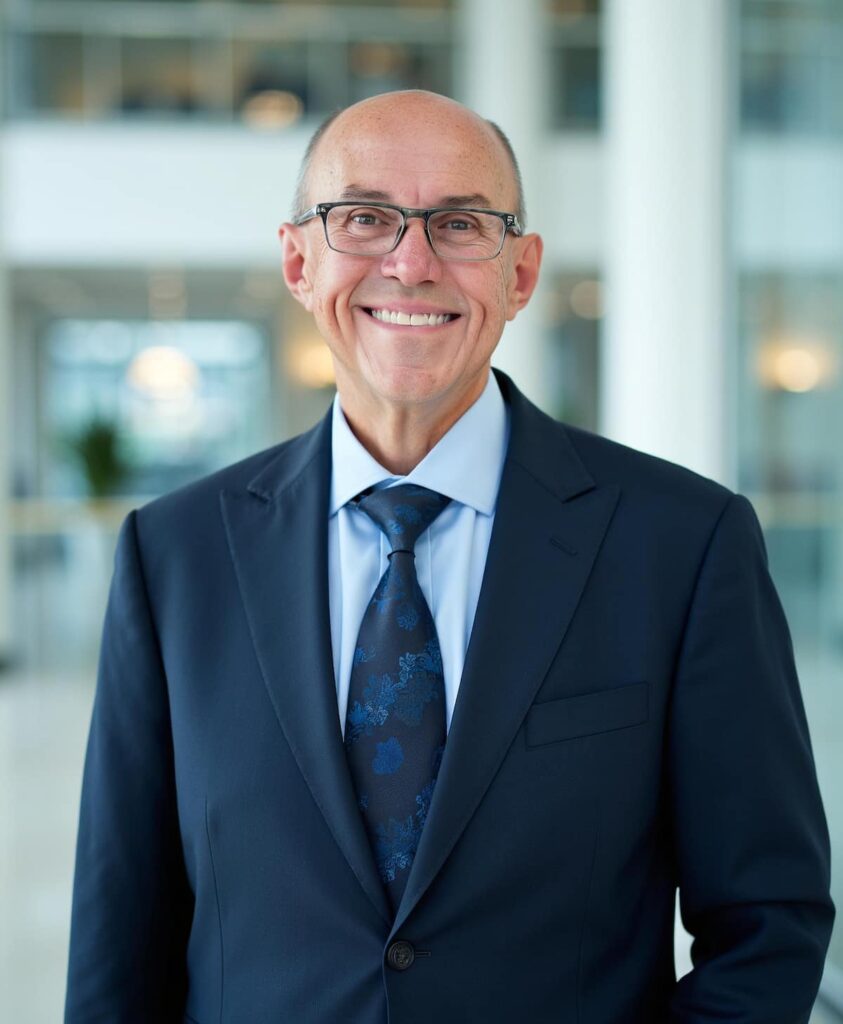
Dr. Dean L. Bartles has dedicated his career to shaping the future of advanced manufacturing in America. As President and CEO of the Manufacturing Technology Deployment Group (MTDG), he leads a not-for-profit organization that drives innovation and modernization across the industrial base.
Dr. Dean L. Bartles | President and CEO | MTDG
Under MTDG, the National Center for Defense Manufacturing and Machining (NCDMM) and Advanced Manufacturing International (AMI) work to strengthen supply chains, advance digital technologies, and support small and mid-sized manufacturers. His journey, spanning more than four decades, reflects a rare mix of industry expertise, government collaboration, and association leadership. At EliteX, we are proud to have Dr. Dean L. Bartles as Cover Story of the edition: Five Trailblazers: CEOs Shaping the Business, 2025.
Dean’s story begins with his deep roots in manufacturing. Early in his career, he ran complex global programs at General Dynamics, experiences that gave him a hands-on understanding of production at scale. Later, he helped launch the nation’s first digital manufacturing institute in Chicago, now known as MxD, which became a landmark in advancing digital technologies for industry. His path also included leadership roles at the National Tooling and Machining Association (NTMA) and the Society of Manufacturing Engineers (SME), where he served as past president. Each role built on the last, shaping his ability to lead MTDG with a balance of mission-driven purpose and measurable results.
“I grew up in manufacturing,” Dean explains. “From running global programs to building a national institute, the lessons of hands-on production and collaborative leadership shaped how I lead today.”

His decision to take on the leadership of MTDG was inspired by a simple but powerful reality: small and mid-sized manufacturers form the backbone of supply chains, but they often struggle to adopt new technologies quickly enough to stay competitive. For Dean, the mission was clear—help these businesses modernize with practical solutions, secure digital systems, and a focus on return on investment. By “meeting manufacturers where they are,” MTDG has become a trusted partner for businesses navigating complex shifts in technology and security.
Looking ahead, Dean has a clear vision for the future. For 2025 and beyond, his focus is on transforming advanced manufacturing into a more resilient, cybersecure, and sustainable system—particularly for defense and supply chain industries. This vision involves more than just research; it requires rapid deployment of proven technologies, expanded workforce training, and stronger global partnerships. For Dean, success is measured not only in business outcomes but also in the growth of people and the strength of communities.

“Success for me is when customers win, people grow, and the ecosystem gets stronger,” he says. “If quality improves, lead times shorten, and our cyber posture tightens while our team advances, then we’re succeeding.”
Dean believes one of the greatest challenges in today’s business world is trust—especially in how data flows across complex supply chains. As industries adopt artificial intelligence, automation, and advanced analytics, leaders must balance speed with responsibility. Time is another challenge, particularly for small manufacturers who work on tight budgets and cannot afford long experiments that don’t produce results.
Yet Dean is optimistic about the role technology is playing in reshaping the industry. He describes the shift from “pilot purgatory”—where innovations never scale—to full production, where interoperable digital threads, predictive analytics, and human-centered automation are changing daily operations. For him, this is the realization of the vision digital manufacturing pioneers had a decade ago, now finally happening at scale.
His leadership is guided by clear values: integrity, stewardship, and technical rigor. Every decision is backed by careful testing, written processes, and a commitment to building trust through transparency. To keep his team motivated, Dean emphasizes clarity and cadence. Objectives are written and simple, progress is demonstrated frequently with customers, and even small wins are celebrated.
“Innovation is our engine,” he notes. “But it earns its way into production through reliability, ROI, and cybersecurity discipline.”

Sustainability and social impact are also at the center of his strategy. By improving process control, manufacturers reduce waste and energy use. By securing digital operations, they strengthen the resilience of local communities. By investing in workforce upskilling, they build long-lasting careers, not just jobs. Dean sees this broader responsibility as essential for the industry’s future.
When asked what advice he would give to young entrepreneurs, Dean stresses the importance of solving real problems, measuring performance with data, and building values-based teams from the start. He also highlights the need for leaders to personally own their ethics and cybersecurity, rather than outsourcing them. Balance, he adds, comes from discipline—blocking time for deep work, maintaining simple fitness routines, and treating focus as a measurable system to be improved. His legacy, he hopes, will be a manufacturing base that is more trustworthy, digitally connected, and prepared for continuous improvement. More importantly, he wants to inspire a generation of practitioners who see secure, data-driven systems not as optional, but as second nature.

Dean draws inspiration from operators who take pride in doing things right, from educators who dedicate themselves to elevating others, and from peers who have modeled servant leadership across the advanced manufacturing community. If he had to summarize the defining word for business leaders in 2025, his answer is direct: trust. Trust, he believes, will be earned through transparency, cyber maturity, and measurable results.
Dean Bartles’ career reflects a rare blend of vision and execution. He has seen the manufacturing industry through its most significant transformations and continues to shape its path forward. His leadership of MTDG shows that while technology and systems are vital, at the heart of manufacturing’s future are people—leaders, operators, innovators, and communities—working together with trust and purpose.